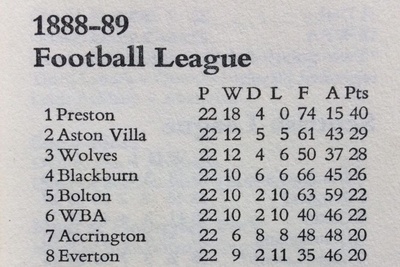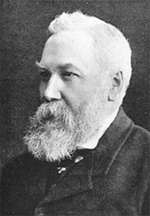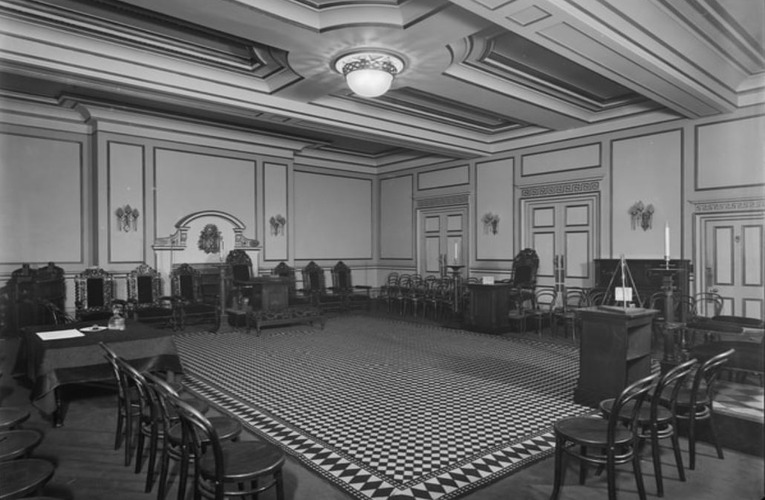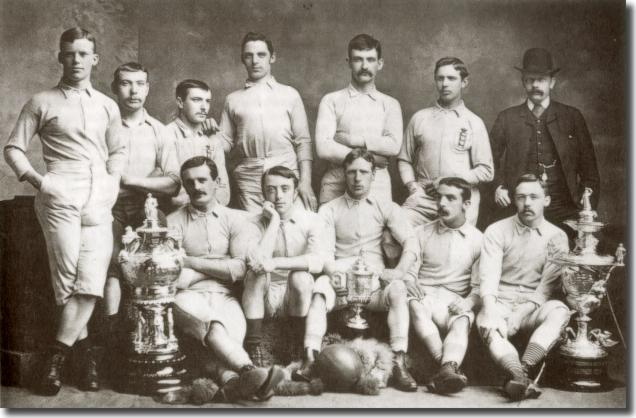 Despite the fact that it is now one of the most dominant sports in the world, football actually has significantly more humble beginnings.
Despite the fact that it is now one of the most dominant sports in the world, football actually has significantly more humble beginnings.
Way before it became the financial behemoth that it is now, at the upper echelons of the game at least, it was little more than organised kick about between friends.
Back then they made up the rules as they went along, something Premier League referees still do to this day.
But who were the founding fathers of the game as we know it? Which clubs were the ones who first founded the Football League? Where are they now? Are they still in existence? Will we ever stop asking questions?
Keep reading to find out.
Early Days Before The Football League

It would be a lie to suggest that no games of football were played before the Football League was officially formed. Back then, though, it was like the Wild West, with no structure or real sense or organisation in place for the matches that were played. Teams organised their own fixtures and cup matches, for example. There was also a bit of cheating going on, too. Numerous clubs ignored the Football Associations amateur rules that forbade the use of “professional” players, instead choosing to pay some people in order to boost their competitiveness on the field. Chelsea & Manchester City fans will be relieved to know that ‘financial doping’ took place long before their clubs even existed.
It wasn’t until 1885 that the FA finally decided to allow the game to turn professional. Even that was after an incredible four years worth of debating over the issue. Next time you wonder why it takes the organisation so long to make a decision on introducing technology into the game, or to over-turn a red card your team’s player received, just be grateful you weren’t waiting to find out if you could officially pay people to play for you without arousing the contempt of your more law-abiding rivals.
Once clubs were allowed to turn professional the floodgates opened, with more and more doing exactly that almost by the week. This turned the previously disorganised world of football from slightly mis-managed to outright chaotic. FA Cup games combined with inter-county games and normal every day matches were seen by the owners of clubs as ways of making increased revenue. Numerous club chairman felt that something needed to be done, but many were wary of putting their neck out to make a suggestion as to how things could be regulated.
Forming Order From Chaos

It was an Aston Villa director, William McGregor, who first made tentative enquiries into the way a structure could be added to the English game. In 1888 He wrote to his own board as well as the boards of numerous Northern & Midlands based clubs proposing the notion of an official league that would guarantee each of its members a certain number of matches each year. No more phoning around to see who fancied a kick-about on a Saturday afternoon.
Ironically, considering the general distain that English people have for American sports, it is likely that McGregor got the idea from a proposal for a college football league that was put forward in America and published in the English press in 1887. It talked of measures being taken to form a league that would consist of “a schedule containing two championship games between every two colleges composing the league”.
A meeting was held for the first time at a hotel called Anterton’s in London on the 23rd of March 1888, the night before the FA Cup final. Plenty was discussed and the general atmosphere was convivial, but nothing was finalised. The only thing that was decided was that another meeting would be held in Manchester on April the 17th at the Royal Hotel.
The Formation Of The English Football League

The meeting in Manchester was where the league was not only formed but also named. Originally McGregor, who had called everybody together in the first place, suggested the name ‘Association Football Union’, but the other people present felt that this was too close to the Rugby Football Union that was already in existence. Instead, Preston’s representative, Major William Sudell, suggested the Football League as a name and it was readily accepted.
A few months later, on the 8th of September 1888, the new league kicked off for the first time. It consisted of just twelve teams from across the Midlands and the North. These teams were Aston Villa, Everton, Stoke (who would later become Stoke City), Blackburn Rovers, Preston North End, Accrington, Bolton Wanderers, Burnley, Notts County, Derby County, West Bromwich Albion and Wolverhampton Wanderers.
Remarkably all but one of those teams are still in existence today. Accrington is the only team to have been dissolved since that meeting in the backroom of a hotel all of those years ago, with the Lancashire side lasting just 8 years before being dissolved. This was due to a combination of the club getting relegated from the First Division and then suffering financial problems after they refused to play in the Second Division, like a spoilt child.
All of the other clubs are still a going concern, with more than a few of them going on to hit some of the highest heights in the game. Aston Villa have won the top division seven times and are one of only five English clubs to have won the European Cup, for example. Blackburn Rovers are one of only six clubs to win the Premier League since its invention in 1992. Everton have won the First Division nine times and are the longest serving club in England’s top-flight, having been there for 112 years at the time of writing.
Bolton Wanderers have a slightly less exciting claim to fame than Everton as they’re the team that has spent the most amount of seasons in the top-flight without winning the title. Burnley, meanwhile, have won the Football League championship twice and the FA Cup once. Derby haven’t won much, but they are one of just ten teams to have competed in every season of the Football League’s existence. Notts County and Stoke have enjoyed limited success, whilst West Brom and Wolverhampton Wanderers success has mainly been in the FA Cup. Finally, Preston North End won the inaugural Football League championship, lasting the entire first season without losing a game.
